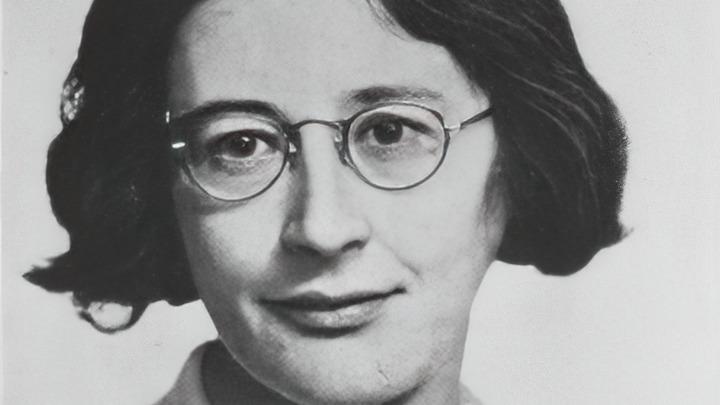She has the same first name as another woman who has already preceded her in this emblematic place of our country which is the Pantheon and a name whose initial is double that of the one who preceded her.
Although Simone Weil's life was short - she died at the age of 34 - and marked, from early childhood, by serious health problems, she was nonetheless infinitely rich.
She leaves a legacy of important work, in which she addressed the crucial political and social issues of our time.
To discover
PODCAST - Listen to the club Le Club Le Figaro Idées with Eugénie Bastié
It is appropriate to honor the memory of this brilliant woman, who obtained her baccalaureate in philosophy on the eve of her 16th birthday, entered the ENS at 19, and was admitted at 22.
Inspiring for our time, this mysticism is unclassifiable and that is what makes it exceptional.
His struggles are eternal and therefore ours too.
A woman of action, she joined de Gaulle in London in 1943, hoping to be sent to France in a combat nursing unit.
Pacifist and sensitive to the condition of oppressed populations, she became aware of the “tragedy of colonization” following the violent repression of the Annamite revolt of Yên Bái.
Professional, she has a real moral sense of responsibility towards her students.
Sensitive to the working conditions of her time, she shows us the path to full and complete commitment by wanting to see for herself, in her flesh one could say, what the proletariat of the 1930s was experiencing. She then became hired as a cutting machine at Alsthom, then as a milling machine at Renault.
This led to her being nicknamed the
“Red Virgin”
by the philosopher and sociologist Célestin Bouglé, who thus took up a nickname previously given to Louise Michel.
Some press also call her, quite wrongly, the
“militant Moscow woman”
.
“I do, therefore I know”:
what is admirable is that her idealism remains tinged with realism, since she recommends
“seeking the most human organization compatible with a given output”
.
Simone Weil embodies this heroine and this saint that our time needs.
Collective forum
A philosopher, she is the author of a work
of “first magnitude”
, in the words of Émile-Auguste Chartier, following the publication of
Reflections on the Causes of Liberty and Social Oppression
in 1934. For Simone Weil, we must tirelessly be concerned with
“the constitution of a civilization based on the spirituality of work”
.
Also a resistance fighter, she joined General de Gaulle in London in 1942 to offer her services to the National Council of the Resistance.
Simone Weil died on August 24, 1943, due to poor health and the deprivations she inflicted on herself during the Second World War, in communion with her fellow citizens who remained in France, under the yoke of the German occupiers.
For Gustave Thibon,
“Nations need heroes and saints like dough needs leaven”
.
Simone Weil embodies this heroine and this saint that our time needs.
“This being, who wanted to be flexible to all the motions of the divine will”
, according to Gustave Thibon, who made his work known, this
“adventurer of thought”
, as Florence de Lussy defines her, this “madwoman”, would have said De Gaulle of her - isn't every exceptional person suffering from a sort of madness?
-, must take its place in the sanctuary that the nation reserves for these great Men.
Laurence Coiffard, professor of cosmetology at the University of Nantes.
Céline Couteau, specialist in cosmetology and teacher at the Faculty of Pharmacy in Nantes.
Éric Anceau, historian specializing in the Second Empire.
Pierre Vabres, professor of dermatology at the University of Burgundy.
Lucas Lehericy, doctoral student and associate professor of history.

